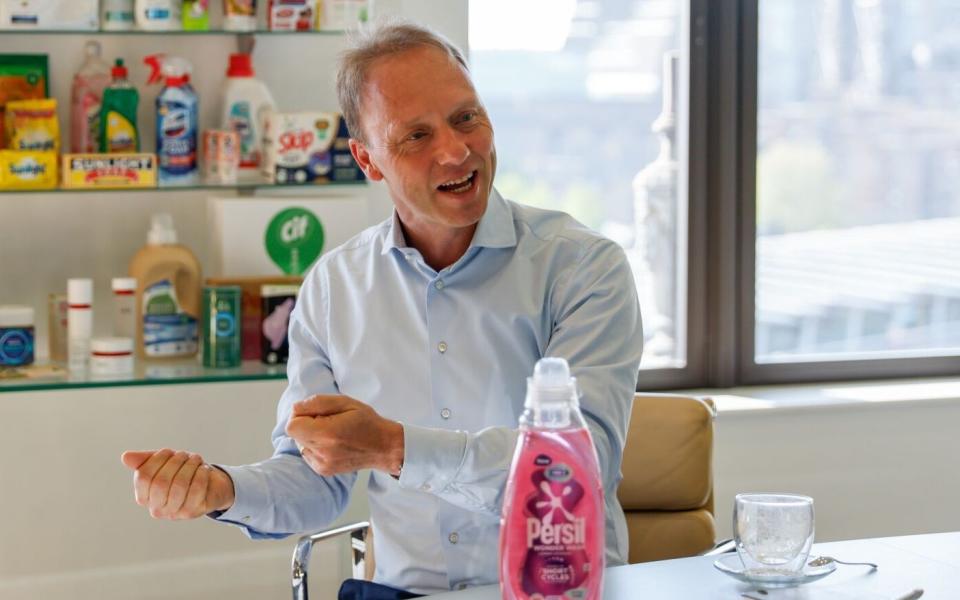Unilever gives up on ‘saving the world’ after ‘virtue-signalling’ backlash

Unilever has abandoned efforts to “save the world” after a backlash from investors over “virtue-signalling” that included giving Hellmann’s mayonnaise a social purpose.
The consumer goods giant, which owns Marmite, Dove, Magnum and Ben & Jerry’s, has watered down green targets and scrapped some diversity pledges after investors told it to focus more on profits and less on social and environmental issues.
Chief executive Hein Schumacher, who took charge last July, told Bloomberg: “I’m not going to shout that ‘we’re saving the world’, but I want to make sure that in everything that we do, that it is indeed better.”
Unilever has softened targets to reduce its use of plastic, improve the health of the land in its supply chain and ensure all the people in its supply chain are paid the living wage.
A promise to increase the number of disabled employees to 5pc of its workforce by 2025 has been scrapped altogether, as have plans to spend almost £2bn with “diverse businesses” across the world by 2025, and to halve food waste in its operations by 2025, Bloomberg reported.
Mr Schumacher said Unilever would focus on doing “fewer things and with greater impact”, adding that the company’s new Climate Action Plan was “very stretching, but they are also intentionally and, unashamedly, realistic”.
Under Mr Schumacher’s predecessors, Alan Jope and Paul Polman, Unilever became focused on improving the planet as well as delivering for investors. In 2019, it pledged to develop a “purpose” for every brand, with everything from Domestos bleach to Vaseline “addressing an environmental or social issue,” Mr Jope said at the time.
However, the focus led to accusations that the company was putting activism ahead of business fundamentals.
Terry Smith, a Unilever investor and the managing director of Fundsmith, repeatedly accused the company of “virtue-signalling” and trying to “define the purpose of Hellmann’s mayonnaise” instead of focusing on performance.
Unilever’s share price has fallen by more than 17pc over the last five years.
Mr Schumacher’s weakening of pledges is the latest move to address investors’ concerns. Last year he abandoned the strategy of ensuring every product had a purpose.
Mr Schumacher said in a statement: “We want to set sustainability ambitions which are credible, which we believe we can deliver against, and which have real positive impact.”
Some of the changes include reducing its targeted use of virgin plastics by one third by 2026, rather than a previous target of 50pc. Its goal for sustainable sourcing of key crops by 2026 has been slightly reduced from 100pc to 95pc.
Other targets have been pushed back: a commitment to using 100pc reusable, recyclable or compostable plastic packaging by 2025 has been delayed until 2030 for rigid plastics and 2035 for flexible plastics.
Roseanna Ivory, a fund manager at Abrdn, which is a top 20 investor in Unilever, said the announcement was “disappointing” but added there was not a significant shift in Unilever’s “commitment to sustainability”.
She said: “It is notable that Unilever’s decarbonisation targets have been left unchanged, and that other commitments, such as to make all plastic reusable, recyclable or compostable, have been retained but pushed further back in time.”
Ms Ivory added that “the challenges of a higher inflationary world make it harder for the company to execute on targets released within a different economic and political context.”

 Yahoo Finance
Yahoo Finance 